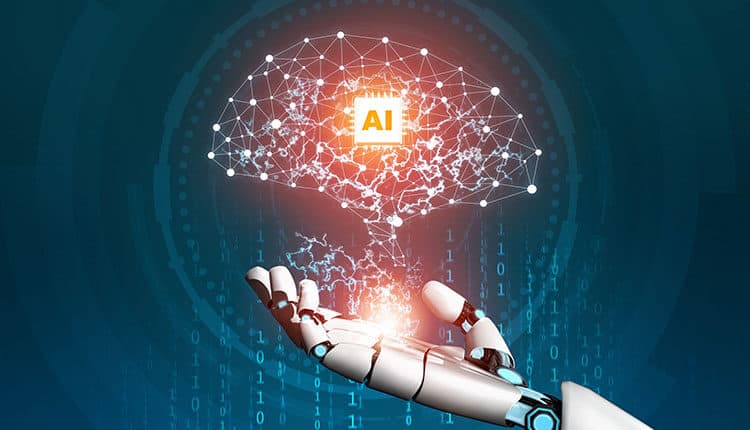By Andrew Kernebone, APAC Head of Presales, GoTo
In a world that is becoming increasingly dominated by technologies like artificial intelligence (AI) and machine learning (ML), tools like ChatGPT provide perhaps the most intuitive ways to run everyday operations within a workplace with ease. The tool has quickly become ‘one of the fastest growing consumer applications today’ and as new applications for the technology emerge, business and IT leaders are increasingly looking to integrate AI into their tools and workflows.
With its great potential to modernise the way we work, ChatGPT can serve as the assistive technology to unlock greater efficiency – not just in the way employees serve customers but also in how IT teams support employees and enhance overall workplace productivity. This new generative AI model is slowly making its way into various business use cases like creating content for marketing purposes, creating intelligent chatbots to communicate with end users, or with language translation to understand customers’ needs and serve them better. Furthermore, workplaces can adopt ChatGPT-like generative AI technologies as a powerful tool to enable their people to work faster and more efficiently.
With hybrid work still the dominant workplace model for most businesses, adopting all-in-one flexible IT tools that can utilise the capabilities of generative AI and cater to a dispersed workforce will be key.
Here’s how businesses can leverage ChatGPT integrated IT tools, transform the way their teams increase business throughput, and realise the full value of their technology investment:
1. Cost-saving revolution with automated workflows
By automating routine tasks and reducing the workload on employees, ChatGPT can help businesses significantly save costs. It can enhance communication between team members by easily retrieving or sharing information, coordinating tasks, and tracking their progress in real-time. The AI tool can be simply integrated with different existing communication platforms so team members can connect real-time and collaborate on projects. Automation of repetitive activities also frees up employees’ time and energy for more complex work and value-adding tasks that require their human expertise.
2. Hyper-personalisation drives customer engagement and value
Customer support chatbots have become an important part of business communication. These AI bots represent the brand, so they must be thoroughly trained on the business, workflows, and customer queries processes. They can help teams communicate more effectively by providing instant access to a wealth of information and expertise to address customer questions and concerns. Not only that, using AI-enabled chatbots allows teams to handle multiple queries simultaneously, provide 24/7 effective assistance and get support with tasks like creating SMS campaigns.
For example, in industries such as Business Process Outsourcing (BPO) or Banking Financial Services and Insurance (BFSI) – the business engine runs on customer retention and acquisition. Using a simplified customer engagement tool powered by ChatGPT will easily help create effective SMS campaigns by generating messages tailored to the campaign’s objective, target audience, and desired call to action. Furthermore, the tool also collects customer data and creates actionable insights to help the business improve their service and deliver greater customer excellence.
3. Redefine support desk servicing and enhance efficiency with this virtual assistant
About 45% of SMEs in India use IT help desk systems every day and around 22% agree that IT help desks have the highest impact on employee productivity. Generative AI chatbots are mainly designed to assist support teams of all natures – both IT teams supporting the company internally as well as customer-facing agents. In this sense, ChatGPT’s ability to fix employee issues quickly, create reports, and summarise large datasets are becoming valuable for companies. IT teams can ask GPT for help with support activities like scheduling meetings, creating and resolving IT tickets, running IT automation scripts across a fleet of devices, and much more.
According to the IT Priorities 2023 Report by GoTo, 48% of business leaders surveyed believe that when selecting new software, it’s crucial to alleviate the workload on IT teams. Since IT teams often face time constraints, utilising technologies such as ChatGPT and other generative AI tools can assist them in completing administrative tasks more efficiently, leading to faster service delivery and increased productivity. This can help ease the burden on IT staff, allowing them to concentrate on more complex tasks.
Artificial intelligence can act as a catalyst for support agents in the cycle of Recognising (customer or employee needs), Requesting (translating these needs for support agents), and Responding (to customers or employees based on their needs).
Generative AI will go a long way in assisting IT leaders to make informed decisions and improve their service over time as it continuously learns from the dataset collected from previous decisions and outcomes. Faster data-driven decisions lead to business growth, and as more organisations adopt AI-driven workplace communication and IT support tools, we can expect to see significant improvements in workplace productivity in years to come.

